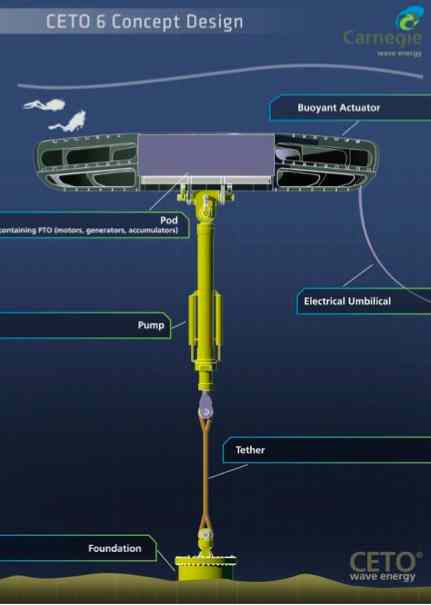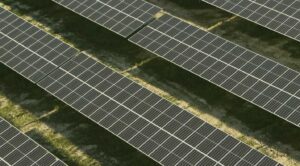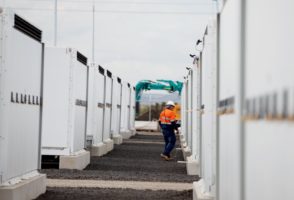Carnegie Wave Energy’s plans to develop a 15MW commercial demonstration of its Australian made CETO 6 technology off the coast of the UK have received a significant boost, after the company was awarded grant funding of $15.5 million towards the project.
Carnegie said on Monday it had been granted £9,551,962 ($A15.5m) from the European Regional Development Fund to support the first phase of its planned commercial project at Wave Hub in Cornwall – the world’s largest and most technologically advanced offshore wave energy testing site.

ASX-listed Carnegie – which recently announced plans to change its name to Carnegie Clean Energy, after its acquisition of solar and battery microgrid developer, Energy Made Clean – has successfully tested its CETO 5 wave energy technology at a smaller scale off the coast of Western Australia’s Garden Island.
In Australia, Carnegie’s focus has shifted from wave energy technology to the development of microgrids for remote and island communities, coupling its wave energy technology with solar and potentially other renewables, as well as battery storage.
Its demonstration Garden Island Microgrid Project, announced in October last year, will combine Carnegie’s CETO 6 array, the existing Garden Island reverse osmosis desalination plant, 2MW of solar PV power generation, and sufficient energy storage to allow safe, stable and reliable interaction with the electricity grid.
The UK project is a planned phased scheme, starting with stage 1, to design, construct, install and operate a 1MW grid-connected CETO 6 wave energy converter device, adapted to local conditions and industrialised for large-scale commercial deployment at the Wave Hub.
Stage 2 – planned for 2020/21 – will deliver a 15MW commercial array at the same site, offering a commercial return on investment.
Carnegie said work on the project would begin immediately, with commissioning set for 2018, followed by 12 months of operations.
The ERDF grant – offered as part of the European Structural and Investment Funds Growth Programme 2014-2020 – will make up 65 per cent of the funding for stage 1 of the project, which is expected to cost $A23.8 million.

“The UK offers unique advantages for the commercialisation of CETO,” said Carnegie managing director and CEO Michael Ottaviano.
“This funding …is a prime example of the funding support available that is accompanied by marine energy revenue support, experienced supply chains, demonstration sites such as Wave Hub and deep investment knowledge in the renewable energy sector,” he said.
“We are delighted to have been selected through what is a highly competitive process consisting of a rigorous technical and commercial assessment process.
Dr Ottaviano also noted that being able to deploy the company’s commercial generation CETO units at the purpose built and grid-connected Wave Hub offered project expansion capability, and served to “significantly derisk” and accelerate Carnegie’s path to commercialisation.
“We are pleased that stage 2 is set to offer a commercial return on investment with its 15MW array which will allow third party investment in this stage,” he said.
“It is a major endorsement of Carnegie and its CETO technology and representative of our ability to export this technology to the world.”








